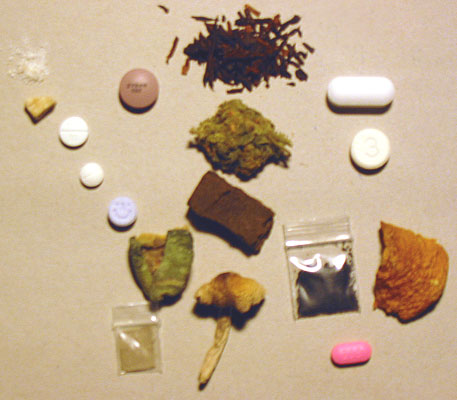Psychopharmacology is interested in looking at how legal and illegal substances impact human emotion, thought, and behavior. This includes both legal, medical substances and other more recreational drugs that are often illegal. Much of the research examines how these substances impact the cemical signalling in the brain, such as their role in affecting neurotransmitters.

The drug action is the effect the drug has in the brain in terms of neuron receptor sites while the drug effect refers to the psychological and physiological changes related to the consumption of the drug. As mentioned, drugs may effect neurotransmitters in the brain. For instance, opiates like heroin and morphine resemble endorphin, a naturally occuring neurotransmitter and therefore take their place in the receptors of target neurons. Meanwhile, other drugs like cocaine increase levels of dopamine, serotonin and norepinephrine in the brain by blocking their reuptake and alcohol blocks acetylcholine, serotonin, GABA and NMDA receptors. This shows the multitude of ways in which drugs can change chemical signaling in the brain.
However, drugs can also affect levels of hormones in the body. They can do this by increasing or decreasing the amount of hormones in the body, which can then impact behavior. Hormones may also be altered because drugs can change the neurotransmitters in the brain that are related to signalling hormonal secretions.
In relation to drugs used to treat mental illnesses, the most common types are antidepressants, antipsychotics, and benzodiazepines. Antidepressants primarily work on norepinephrine and serotonin in the brain in the treatment of depression and anxiety, while benzodiazepines are also used to treat anxiety and panic attacks through acting on the GABA receptor. Lastly, antipsychotics are widely used to treat psychotic disorders, schizophrenia, and bipolar disorder, which mainly act on the dopaminergic system.
Not only does psychopharmacology look at how to treat mental illness, but it also has to consider the psychological and physical side effects that some drugs produce. For example, antipsychotics may give symptoms similar to Parkinson's disease because of its impact on dopamine. Therefore, research is constantly seeking the best ways to treat mental illness while producing the least amount of side effects.
Image Credit: Thoric / Wikimedia Commons
© BrainMass Inc. brainmass.com June 30, 2024, 9:20 am ad1c9bdddf
